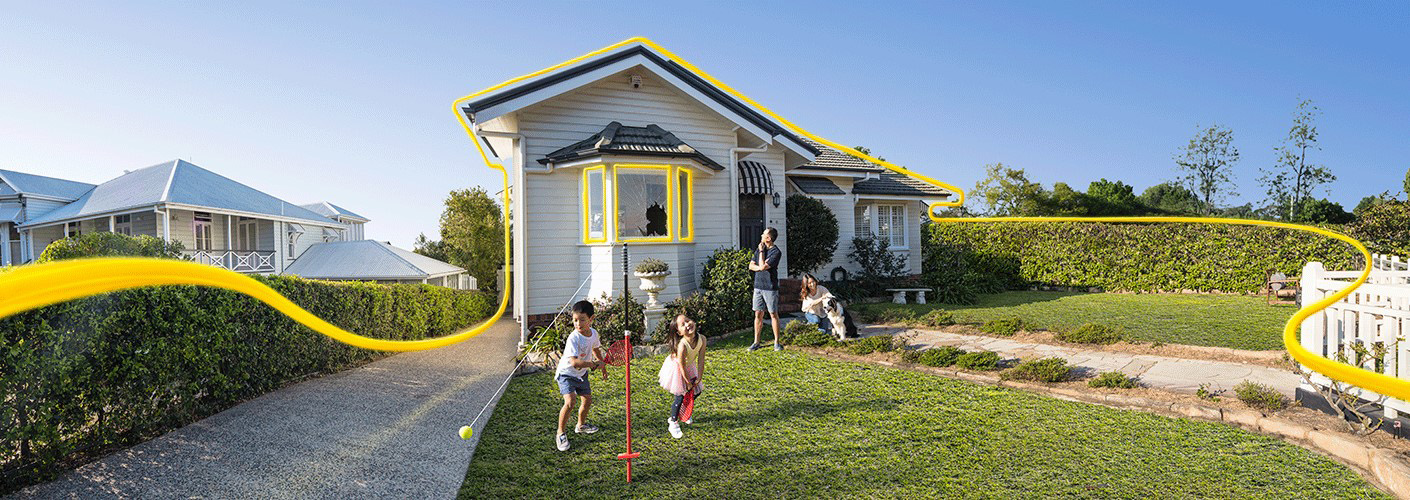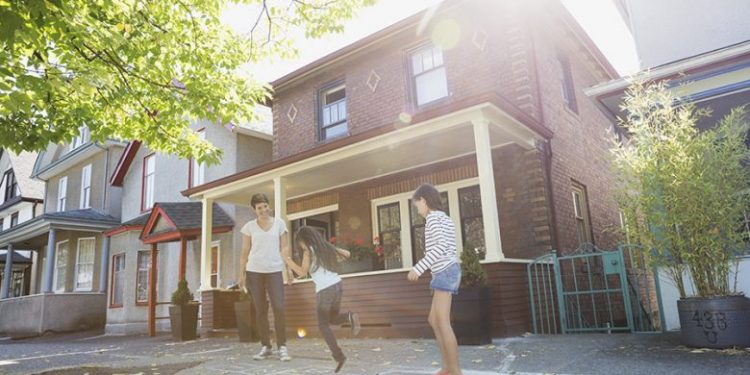When purchasing home and contents insurance, price is only one of the many essential factors to consider. Regardless if you want to move into a new property or looking to renew your policy, there are several things worth considering when it comes to making sure that your property and its possessions are well-protected.
Here are 5 useful tips when purchasing your home and contents insurance:

The Building & Rebuilding
For those who are homeowners, you already know that getting buildings insurance is necessary. Generally speaking, insurance helps to provide you with some financial protection in case something terrible happens to your house.
Before choosing your building’s insurance, you’ll have to estimate your home’s rebuild cost, which can be very easy to overestimate. Typically, the rebuild cost is only for the physical property (brick & mortar) – and not the land it lies on – which you would have paid substantially for when purchasing your house – as well as the home’s cost.
Another critical factor to consider is new-for-old. Although a majority of insurers will provide new-for-old cover, not all of them will do so. If you’d like to gain from it, make sure that your overall content limits reflect the price of acquiring new items.
Most policies usually increase contents cover for Christmas and weddings, because of presents in the home during these times. Confirm with the insurer to ensure that that particular cover is high enough to satisfy your requirements. Additionally, for those who work from home, you’ll have to confirm that the business equipment is relatively high enough. In fact, for such things, new-for-old may be a very important feature.
Your Home’s Contents
For starters, you will have to work out how much of home contents insurance you require. Generally speaking, the best way to estimate your contents’ value is to carry out an inventory, room by room. Alternatively, you could use a contents calculator to work this out.
Ensure that you don’t underestimate the actual worth of your possessions since you might end up out of pocket in case you need to make a claim. For instance, you could estimate your possessions’ worth to be $40,000 but the actual total is $60,000. If you decide to claim $5,000 of stolen possessions – that insurer is entitled to pay only $4,000 – which is a fraction of the sum you were supposed to be insured for.

You should also remember your valuable/ precious items.
You should be prepared to outline all these individuals on your particular insurance by naming them along with their value. You should also include whether (or not) they are to be covered just within the house, or also while you’re away (such as an engagement ring). What’s more, make sure that the single-item limit covers your most pricey belonging, such as a pricey piece of jewelry.
In most cases, single item limits might stop at a specified amount unless you state otherwise. Also, when setting your particular items cover, ensure include any musical instruments. If it’s particularly valuable, you may require a special valuation.
You may also need to check whether you’re covered for theft of keys or loss of keys, and the cost of replacing your locks. Furthermore, check to confirm whether the insurance company has a limit on the amount you can claim on this. In most cases, buildings insurance covers garages and outbuildings.
However, don’t forget to confirm how much contents cover you got for the items you keep in them. In case you store substantial amounts of food in your freezer or fridge that you wouldn’t easily afford to replace, it would be best to ensure that you get freezer contents cover. Although most companies won’t cover you, others provide it as a standard.
Accidental Damage
You are usually covered for accidental damage to properties under a basic policy if, for instance, you damaged pipes or drains around your building, or someone crashed a vehicle into your house. The same applies to any damage that’s accidentally caused to bathroom and glass fittings. In case that’s enough, you could always incur more to have a higher level of accidental damage cover on your specific policy.
In most cases, you’re covered under basic policies when it comes to accidental damage to contents, such as glass, mirrors, computers, and home entertainment equipment. However, look out for the exclusions since damage caused when cleaning, repairing, or maintaining is usually excluded. But other insurance companies don’t cover accidental damage as standard. In such a case, you might need to include this onto your specific policy as an extra.
Excess
In general, a relatively higher insurance excess might knock pounds off your particular premium. It is useful when you don’t have to claim for low amounts since doing so will probably increase your insurance cost in the future. Although the escape of water is quite a common claim, the excess isn’t always the same as in your policy’s main section. So double-check and make sure your excess for this is much affordable.
Away from Home Cover
Generally speaking, away from home cover might come in handy when you take your possessions outside the home. It often comes as an add-on to your particular contents policy and will, primarily, protect your belongings such as tablets, laptops, phones, and even jewelry and watches while you’re out and about. In case your kids are away at college or university, some insurers may allow you to add their belongings to your policy rather than taking out different student contents insurance.
It’s also worth considering alternative accommodation and legal cover. Many insurers provide alternative accommodation when your building gets uninhabitable after damage. It would be best to look at the small print to ensure that the insurance company covers you for a decent amount of alternative accommodation if you can’t go back to your home for a while.
Although the legal cover is something that’s usually overlooked, it is essential. Primarily, it helps to protect you financially in case something terrible occurs at your house. For instance, if any of the equipment in your property injures someone, or perhaps the building itself (trip hazard, a loose step, falling roof tiles, etc.)
If you don’t have any legal cover, then you would be entitled to pay them any compensation and perhaps their court fees (as well as your own). What’s more, if you often have guests staying or your house is listed on certain sites such as Airbnb, confirm that your policy covers you. For those who own a bike, make sure to confirm that your specified policy covers it, since cover for bikes may vary widely. For this reason, make sure that you have enough cover for all your bikes whether it is at home or away from home
Bottom line
Regardless if you own or rent your house, protecting it and all the contents within it is vital! As you can now see, there are many factors worth considering when you come down to purchasing home and contents insurance. In short, to make sure that you get the correct home insurance policy for your particular needs, it would be best to keep these 5 tips in mind when taking out your home and contents insurance. Fortunately, they will guide you to make an informed decision.






